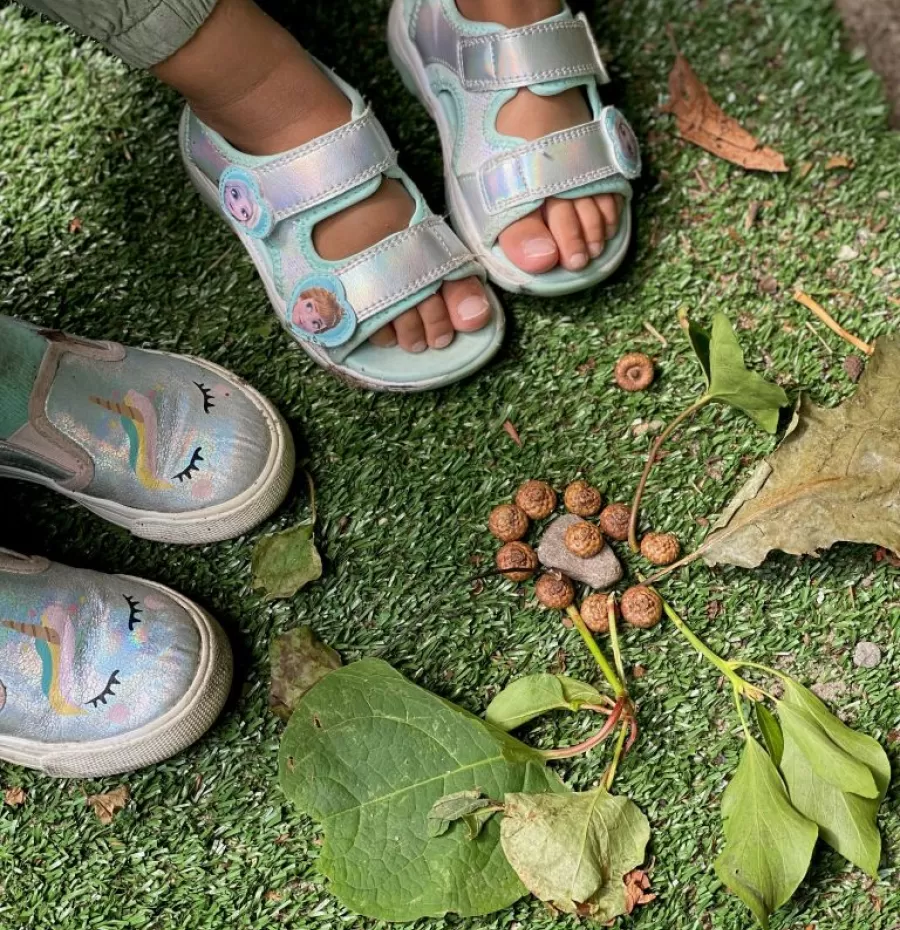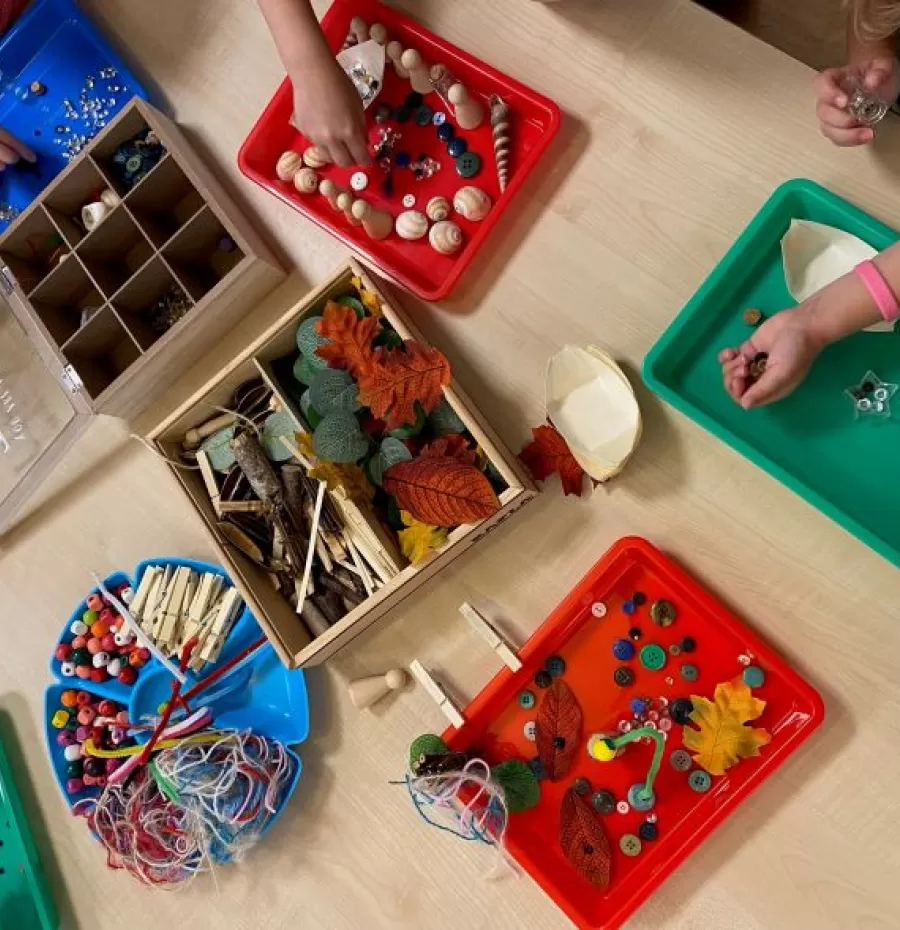
Page content
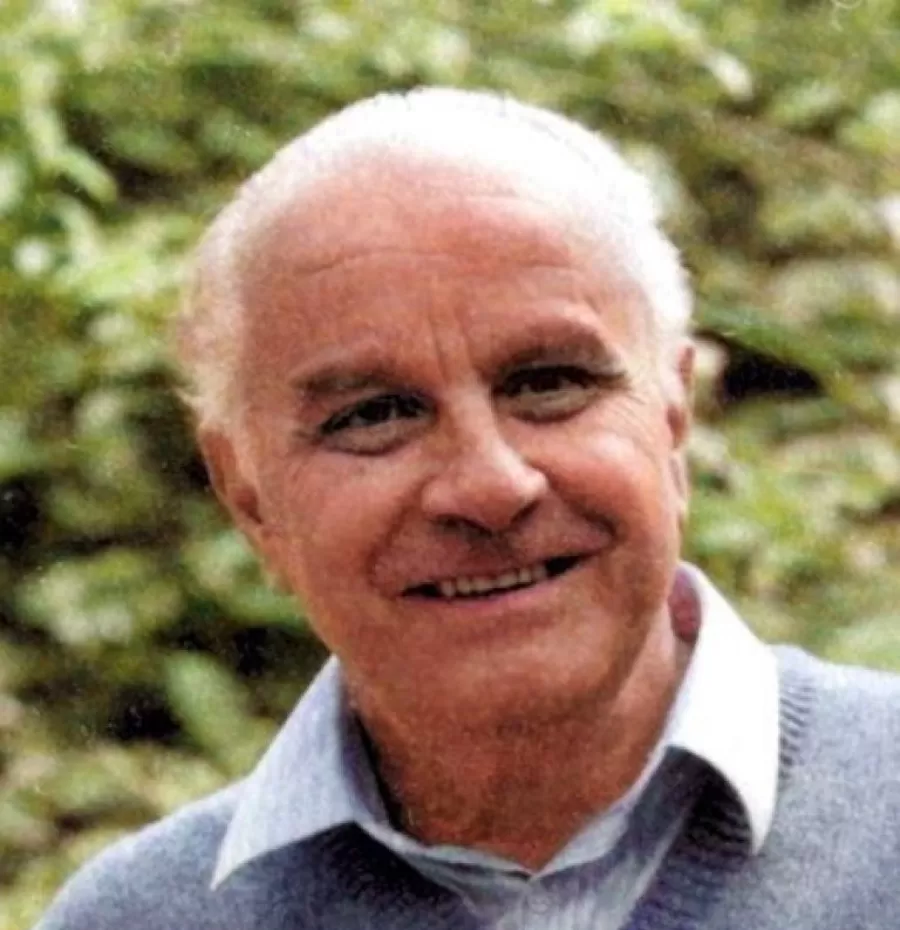
One hundred languages
As soon as children are born, they try to connect with the world around them. They do not communicate through spoken language, but they do communicate in every other possible way. According to Malaguzzi, young children speak as many as a hundred languages. They express themselves in sounds, by gesturing, crawling somewhere, moving, drawing, claying, crafting, painting, making sounds, singing, dancing, dressing up and playing together.
Adults express themselves mainly through spoken language. As a result, opportunities to express yourself diminish in older children or even disappear altogether. Reggio Emilia aims to provide just that multiplicity of expression.
Source of inspiration
Our pedagogical approach does not simply stand alone, but is a collection of the ideas of pedagogues, psychologists and experts from science and practice. The pedagogical ideas of Reggio Emilia are an important basis of our vision of childcare. You can see this way of thinking reflected, for example, in the space given to children to discover and develop creatively on their own, the role of the pedagogical staff member in the group and the layout of the group room.
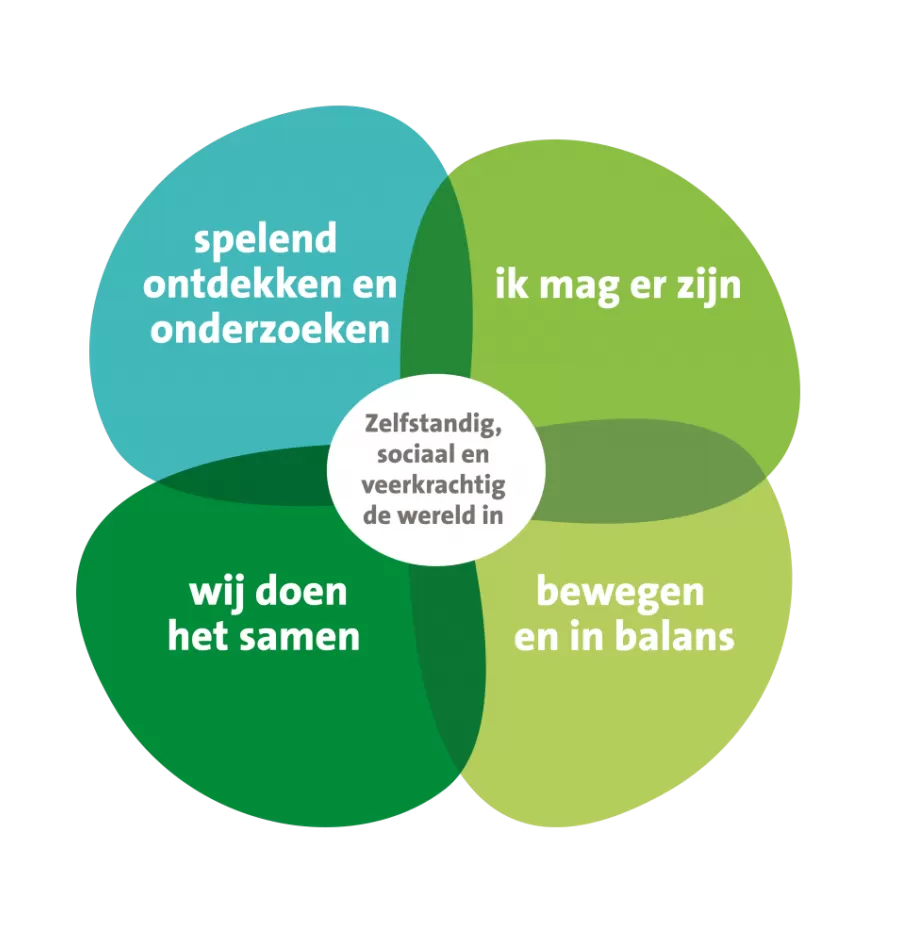
Together with others
The first pedagogue is the children themselves. Children understand each other without words and are focused on each other. Moreover, they learn by watching, imitating and criticising peers. The group is a good training ground for children where they learn to interact with other children and adults through play.
Children learn from each other during activities in small groups. They watch each other, imitate each other, have fun together, chase each other or make fun of each other. In a small group, children pick up faster how someone else does or handles something. Exchanging experiences and ideas and experimenting together helps children to better understand the world around them. This is why we offer children a sports or game activity in smaller groups where they can work together. We put babies together on a play mat in the group to enable them to see, discover and imitate each other and make contact with each other.
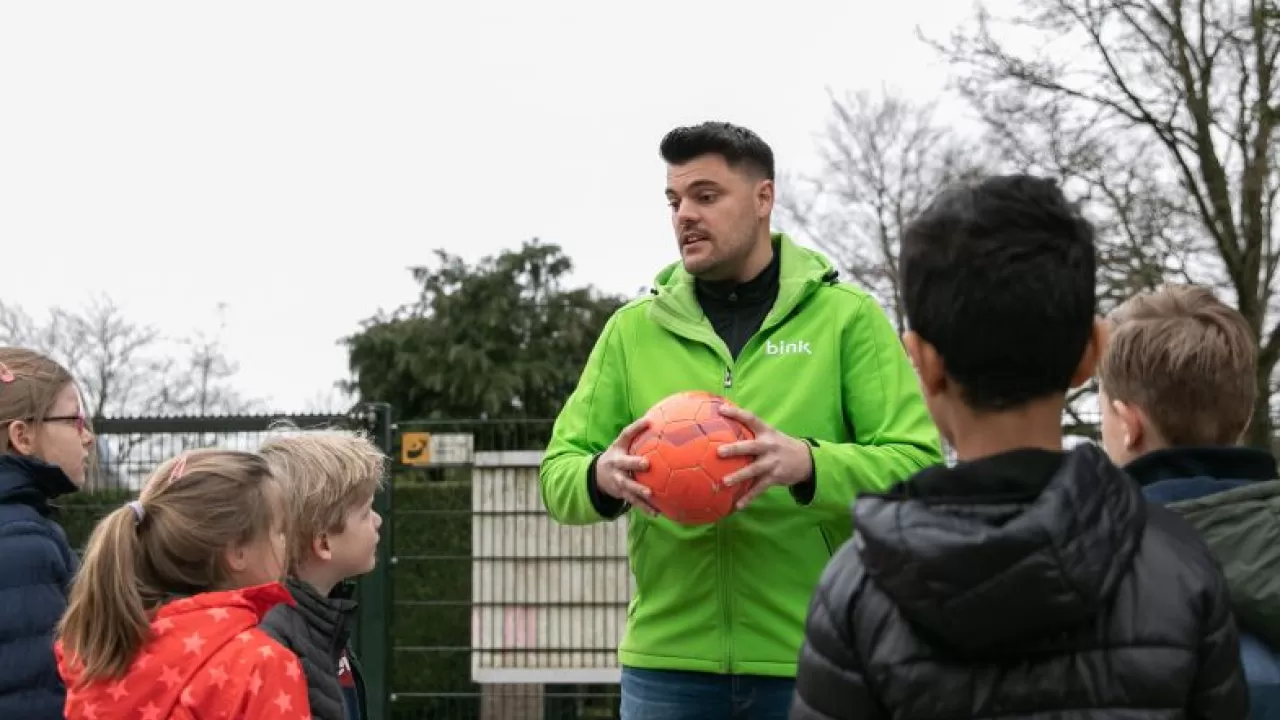
I have value
The pedagogical staff member is the second pedagogue. The staff member in the group supports children in the process of shaping ideas and managing mutual interactions. Pedagogical staff encourage children to think things through by asking open questions, about materials, experiments or creations, for example. The pedagogical staff starts from each child's own strengths and examines whether and what support they need.
Children learn by playing, choose what, where and with what they want to play. Do they feel like doing crafts? For safety reasons, they cannot get all the craft materials themselves, but they are visibly displayed in the room so they know they are there.
Pedagogical staff members are attentive to children's interests and respond accordingly. Do children want to make and sell something for charity? Then we look together at how and what is needed to organise this.
Exploring and discovering by playing
For children, thinking and learning happens mainly by doing. Interesting materials with which children can experiment by themselves help. The layout of the group room provides structure and enables children to know where things are. At the same time, the room invites them to explore and discover. Therefore, the group room and the materials are the third pedagogue. According to the Reggio Emilia vision, the group room is quiet without being dull.
We provide an inviting and challenging environment for children. The (play) material is not too easy, but not too difficult either. The toys are at child height and it is clear what children can do in which play corner. This not only provides safety and peace of mind, but also encourages independence.
Children play with everyday utensils, natural materials (such as chestnuts, feathers and shells) and free materials (such as rope, corks and tubes). We call these ‘open’ play materials or loose parts. With these materials, children play, investigate and experiment in line with their interests and development.
